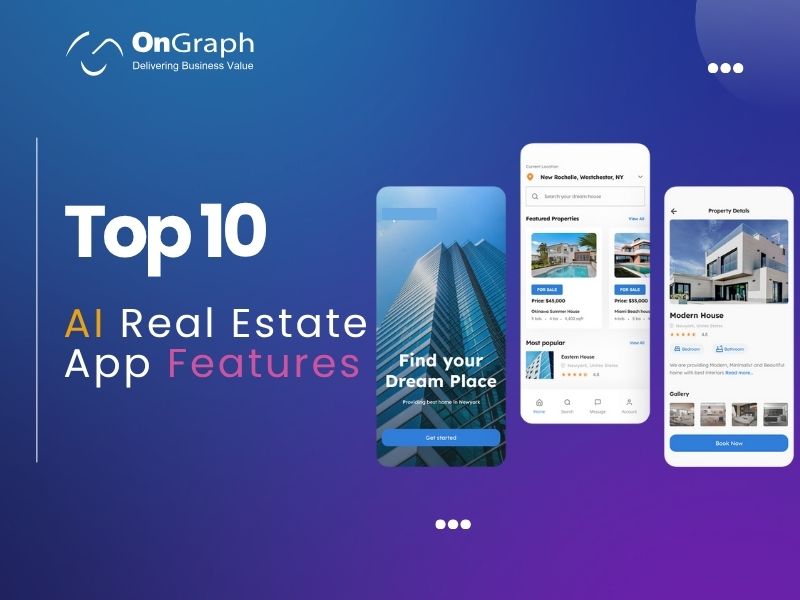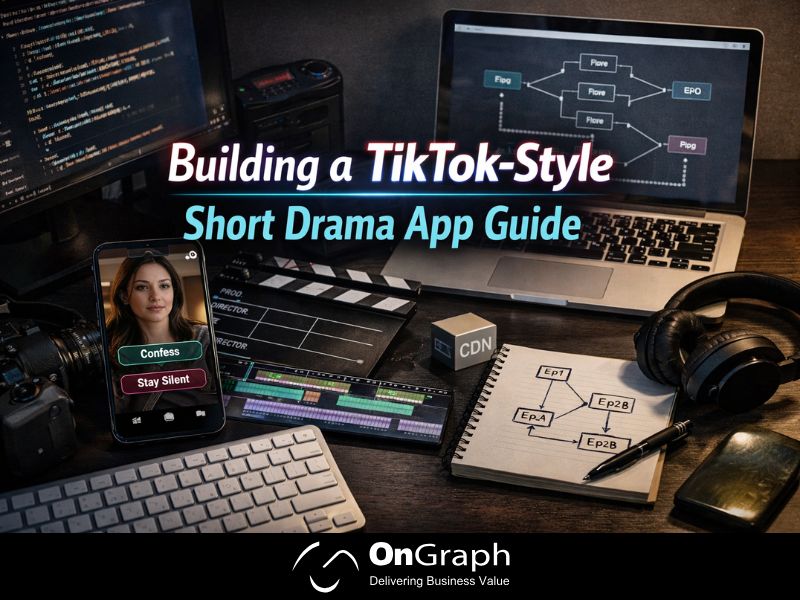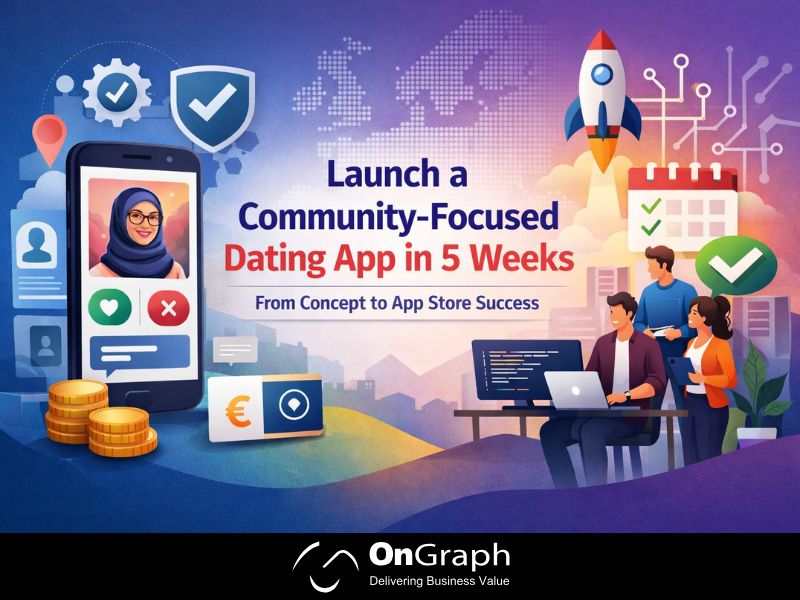In this article
- 1. AI-Powered Property Search & Matching
- 2. Predictive Property Valuation
- 3. Smart Chatbots & Virtual Assistants
- 4. Virtual Property Tours (AR/VR)
- 5. Automated Lead Scoring & Qualification
- 6. Intelligent Document Processing
- 7. Predictive Analytics for Market Trends
- 8. Image Recognition for Property Features
- 9. Personalized Property Recommendations
- 10. AI-Driven CRM & Follow-Up Automation
- Conclusion
The real estate industry is transforming faster than ever, thanks to Artificial Intelligence (AI). By 2025, more than 60% of property transactions will involve at least one AI-driven touchpoint (Source: Statista, 2024). From intelligent property search to virtual tours and automated lead management, AI-powered tools are reshaping how buyers, sellers, and agents interact. If you’re planning to build or upgrade your property platform, focusing on the right AI real estate app features can make all the difference.
These features don’t just improve user experience — they help agents close deals faster, improve pricing accuracy, and reduce manual work.
In this article, we’ll explore the top 10 AI real estate app features you need in 2025 — what they do, why they matter, and how leading apps like Zillow, Redfin, and Realtor.com are already using them successfully.
1. AI-Powered Property Search & Matching
What It Is
AI-based property search uses natural language processing (NLP) and machine learning to understand what users truly want — even when they type vague queries like “2BHK near schools under 50L.”
Why It Matters
Traditional search filters often miss context. AI-driven matching understands intent, lifestyle preferences, and historical behavior, delivering more accurate and personalized results.
Real Example
Zillow’s AI home search improved user satisfaction by 35% by personalizing search results based on previous interactions (Zillow Data Report, 2024).
Implementation Tip
Use ML models trained on property data and user interactions. Integrate recommendation APIs that adapt over time as user preferences change.
2. Predictive Property Valuation
What It Is
AI property valuation tools analyze millions of data points — location, size, amenities, historical sales — to estimate property prices in real time.
Why It Matters
This feature eliminates human guesswork and helps both buyers and sellers make data-driven decisions.
Real Example
Redfin’s AI valuation model improved price prediction accuracy by over 40%, saving agents hours of manual work (Redfin Report, 2024).
Implementation Tip
Combine regression models with local market trends. Use public datasets (e.g., Zillow Zestimate API) or train your own on regional sales history.
3. Smart Chatbots & Virtual Assistants
What It Is
AI-powered chatbots can handle user queries, schedule property visits, qualify leads, and even provide mortgage information 24/7.
Why It Matters
Users get instant responses without waiting for human agents. Businesses reduce workload and capture more leads outside business hours.
Real Example
Realtor.com’s chatbot answers over 70% of customer queries automatically, improving response time by 65%.
Implementation Tip
Integrate AI Voice Agent Development Solutions like OnGraph to manage voice and text-based interactions for better engagement and conversion.
4. Virtual Property Tours (AR/VR)
What It Is
Virtual tours powered by AR and VR let buyers explore properties remotely through immersive visuals and guided 3D experiences.
Why It Matters
With travel restrictions and remote clients, virtual tours help buyers make faster decisions. They can “walk through” homes from their smartphones.
Real Example
Matterport’s AI-powered 3D tours increased online property engagement by 300% (Matterport Research, 2023).
Implementation Tip
Integrate ARKit (iOS) or ARCore (Android) for realistic visualization. Optimize 3D content to load quickly even on mobile networks.
5. Automated Lead Scoring & Qualification
What It Is
AI automatically scores incoming leads based on their activity, budget, and engagement — prioritizing the ones most likely to convert.
Why It Matters
Sales teams waste time chasing cold leads. AI helps them focus on high-intent buyers, improving conversion rates by up to 50%.
Real Example
A leading US brokerage reported a 35% increase in deal closures after implementing AI-based lead scoring (Inman News, 2024).
Implementation Tip
Connect your CRM with predictive lead models using APIs or tools like HubSpot AI and Salesforce Einstein.
6. Intelligent Document Processing
What It Is
AI can extract, validate, and categorize data from legal papers, loan documents, and contracts automatically using Optical Character Recognition (OCR).
Why It Matters
Agents and buyers no longer need to handle endless paperwork manually. It saves time, minimizes human error, and ensures compliance.
Real Example
DocuSign’s AI model reduced contract verification time by 60% (Forrester, 2023).
Implementation Tip
Use AI tools like Google Cloud Vision or AWS Textract for document parsing and validation within your app’s workflow.
7. Predictive Analytics for Market Trends
What It Is
Predictive analytics models use historical and real-time data to forecast property prices, demand patterns, and investment potential.
Why It Matters
Developers, investors, and buyers can make smarter investment choices, reducing risks in volatile markets.
Real Example
CoreLogic’s predictive insights helped agents identify “hot zones,” leading to 25% faster sales (CoreLogic Report, 2024).
Implementation Tip
Integrate APIs that use regression and time-series forecasting models. Combine them with local market and demographic data for better accuracy.
8. Image Recognition for Property Features
What It Is
AI image recognition automatically detects and tags features in property photos — like swimming pools, hardwood floors, or balconies.
Why It Matters
Users can search for homes by visual features rather than long descriptions — improving engagement and search precision.
Real Example
Zillow’s photo AI tool categorizes over 1 million images daily, helping users filter listings more efficiently.
Implementation Tip
Use computer vision models like TensorFlow or Clarifai to identify and tag property features in your image database.
9. Personalized Property Recommendations
What It Is
AI uses behavior tracking and previous searches to recommend properties users are most likely to buy or rent.
Why It Matters
It enhances user experience and boosts engagement — just like Netflix suggests shows, your app suggests relevant listings.
Real Example
Redfin’s personalized property feed led to a 25% increase in user retention (Redfin Annual Report, 2024).
Implementation Tip
Train a recommendation engine on user behavior, preferences, and browsing patterns. Start simple and refine models as your data grows.
10. AI-Driven CRM & Follow-Up Automation
What It Is
An AI-integrated CRM automates follow-ups, reminders, and communication workflows between agents and buyers.
Why It Matters
It prevents missed opportunities and ensures consistent engagement throughout the sales journey.
Real Example
Compass Real Estate’s AI CRM improved follow-up efficiency by 40%, helping agents close deals faster (Compass Insights, 2024).
Implementation Tip
Integrate AI CRMs like Zoho, HubSpot, or build a custom solution using Node.js and Python-based ML frameworks.
Transform Your Real Estate Business with a Custom AI App—Get Your Free Consultation
Boost your property sales, automate lead management, and deliver a smarter experience for buyers and agents.
Conclusion
The real estate industry is moving toward smart, data-driven experiences — and the right AI real estate app features can put your business miles ahead of competitors.
From predictive property valuation to virtual tours and intelligent lead management, each feature helps you enhance customer satisfaction, save time, and grow revenue.
FAQs
The cost depends on the number of AI features, complexity, and development platform. On average, an AI-powered real estate app can cost between $25,000 and $120,000. Advanced features like virtual tours and predictive analytics may increase the price. For an accurate estimate, request a detailed quote from a real estate app development company like OnGraph.
The most common technologies include machine learning for predictions, natural language processing (NLP) for chatbots, and computer vision for image-based search. Tools like TensorFlow, PyTorch, and OpenAI APIs are often used to build scalable AI real estate solutions.
A standard app with core features takes around 3–4 months, while advanced platforms with AI features like predictive analytics and virtual tours can take 6–8 months depending on team size and customization level.
Not entirely. AI supports agents by automating repetitive tasks — like data entry, property valuation, or lead qualification — so they can focus on building relationships and closing deals faster.
AI helps improve property matching, reduce errors in valuation, automate lead management, and deliver better customer experiences through personalization and predictive insights.
Modern AI valuation tools are up to 90% accurate, as they analyze millions of data points compared to human-based estimates. Apps like Redfin and Zillow have already achieved over 40% improvement in price prediction accuracy with AI.
Having a large dataset improves accuracy, but even smaller datasets can deliver results when combined with pre-trained models or third-party APIs. Over time, your app can gather its own data to fine-tune AI performance.
About the Author
Let’s Create Something Great Together!
Latest Blog
















